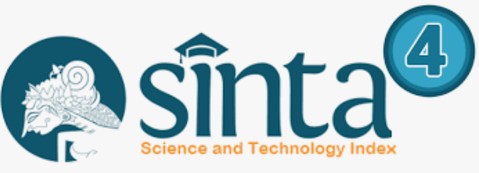DOES THE AUDIT FEE, AUDIT TENURE, AND AUDIT ROTATION AFFECT THE AUDIT REPORT LAG: IMPLICATIONS FOR AUDIT EFFICIENCY AND TIMELINESS OF REPORTS
DOI:
https://doi.org/10.36085/jamekis.v8i2.7809Abstract
This study examines the influence of Audit Fee, Audit Tenure, and Audit Rotation on Audit Report Lag, focusing on manufacturing companies in the property and real estate sector listed on the Indonesia Stock Exchange during the 2017–2021 period. The research is motivated by the importance of timely financial reporting, which significantly impacts stakeholders' decision-making processes. However, prolonged Audit Report Lag remains a challenge, and limited studies have addressed its relationship with these audit variables, creating a gap in the literature. This study employs panel data regression analysis on data from 33 companies over the five-year period, resulting in 165 observations. Secondary data were obtained from audited financial statements and corporate disclosures. The findings reveal that Audit Fee and Audit Tenure have a significant negative effect on Audit Report Lag, indicating that higher fees and longer auditor-client relationships can expedite reporting. Conversely, Audit Rotation shows a positive relationship with Audit Report Lag, suggesting that auditor changes may delay reporting. These findings provide valuable insights for regulators, auditors, and companies to enhance the efficiency and timeliness of audits
References
Al-Ebel, A., Baatwah, S., & Al-Musali, M. (2020). Religiosity, accounting expertise, and audit report lag: Empirical evidence from the individual level. Cogent Business & Management, 7 (1), 1823587. https://doi.org/10.1080/23311975.2020.1823587
Akerlof, G. A. (1970). The market for “lemons”: Quality uncertainty and the market mechanism. Quarterly Journal of Economics, 84 (3), 488–500. https://doi.org/10.2307/1879431
Byrne, D. (1961). The influence of propinquity and opportunities for interaction on classroom relationships’. 14 (1), 63–69. https://doi.org/https://doi.org/10.1177/001872676101400106
Byrne, D., & Buehler, J. A. (1955). A note on the influence of propinquity upon acquaintanceships. Journal of Abnormal and Social Psychology, 51 (1), 147–148. https://doi.org/10.1037/h0040985
Carcello, J. V. (2004). Audit firm tenure and fraudulent financial reporting. Auditing, 23 (2), 55–69. https://doi.org/10.2308/aud.2004.23.2.55
Doogar, R. (2015). Audit fee residuals: Costs or rents? Review of Accounting Studies, 20 (4), 1247–1286. https://doi.org/10.1007/s11142-015-9322-2
Dwiandari, F. R. (2020). Abnormal audit fee, audit tenure, and audit quality. International Journal of Innovation, Creativity and Change, 13 (4), 780–796. https://www.scopus.com/inward/record.uri?partnerID=HzOxMe3b&scp=85087088530&origin=inward
Dye, R. A., & Sridhar, S. S. (2008). A positive theory of flexibility in accounting standards. Journal of Accounting and Economics, 46 (2–3), 312–333. https://doi.org/10.1016/j.jacceco.2008.09.002
Farid, M. N. F., & Baradja, L. (2022). Pengaruh Fee Audit, Audit Tenure, Audit Rotasi, Ukuran Perusahaan Klien Pada Kualitas Audit. Jurnal Ekonomi Trisakti, 2 (2), 1063–1078. https://doi.org/10.25105/jet.v2i2.14750
Hai, P. T. (2020). Research factors affecting professional skepticism and audit quality: Evidence in Vietnam. International Journal of Innovation, Creativity and Change, 13 (1), 830–847. https://www.scopus.com/inward/record.uri?partnerID=HzOxMe3b&scp=85085200299&origin=inward
Hooks, J. J., & Perera, H. (2006). The evolution of annual reporting practices of an electricity firm. Accounting Forum, 30 (2), 85–104. https://doi.org/10.1016/j.accfor.2005.10.002
Jenkins, J. G., & Haynes., C. M. (2003). The Persuasiveness of Client Preferences: An Investigation of the Impact of Preference Timing and Client Credibility. Auditing: A Journal of Practice & Theory, 22(1).
Jensen, M. C., & Meckling, W. H. (1976). Theory of the firm: Managerial behavior, agency costs and ownership structure. Journal of Financial Economics, 3 (4), 305–360. https://doi.org/10.1016/0304-405X(76)90026-X
Junior, D. D. H., Mattos, L. K. De, & Flach, L. (2020). Audit report lag determinants: a panel data regression model with all companies listed on the Dow Jones Stock Index. International Journal of Business Excellence, 21 (1), 139. https://doi.org/10.1504/IJBEX.2020.106954
Lai, K.-W. (2019). Audit report lag, audit fees, and audit quality following an audit firm merger: Evidence from Hong Kong. Journal of International Accounting, Auditing and Taxation, 36, 100271. https://doi.org/10.1016/j.intaccaudtax.2019.100271
Laura, R., Nur Laela Ermaya, H., & Warman, E. (2021). Apakah Opinion Shopping, Reputasi Kap, Audit Tenure Dan Kondisi Keuangan Mempengaruhi Opini Audit Going Concern? JIAFE (Jurnal Ilmiah Akuntansi Fakultas Ekonomi), 07 (01), 1–10. https://doi.org/10.34204/jiafe.v7i1.2928
Paramitha, M. D., & Setyadi, E. J. (2022). Pengaruh Dewan Komisaris, Komisaris Independen, Komite Audit, dan Kompleksitas Perusahaan Terhadap Fee Audit. Ratio : Reviu Akuntansi Kontemporer Indonesia, 3 (1), 13. https://doi.org/10.30595/ratio.v3i1.12840
Purda, L., & Skillicorn, D. (2015). Accounting Variables, Deception, and a Bag of Words: Assessing the Tools of Fraud Detection. Contemporary Accounting Research, 32 (3), 1193–1223. https://doi.org/10.1111/1911-3846.12089
Read, W. J., & Yezegel, A. (2018). Going-concern opinion decisions on bankrupt clients: Evidence of long-lasting auditor conservatism? Advances in Accounting, 40, 20–26. https://doi.org/10.1016/j.adiac.2017.12.004
Sekaran, U., & Bougie, R. (2016). Research Methods for Business : A Skill-Building Approach (Seventh Ed). John Wiley & Sons, Inc.
Tarca, A., Street, D. L., & Aerts, W. (2011). Factors affecting MD&A disclosures by SEC registrants: Views of practitioners. Journal of International Accounting, Auditing and Taxation, 20 (1), 45–59. https://doi.org/10.1016/j.intaccaudtax.2010.12.001
Vanstraelen, A. (2002). Auditor economic incentives and going-concern opinions in a limited litigious continental European business environment: Empirical evidence from Belgium. In Accounting and Business Research (Vol. 32, Issue 3). https://doi.org/10.1080/00014788.2002.9728966
Wardani, N. K. (2023). Pengaruh Effective Tax Rate (Etr), Profitabilitas Dan Tunneling Incentive Terhadap Transfer Pricing (Studi Empiris Pada Perusahaan Manufaktur Yang Terdaftar di Bursa Efek Indonesia Tahun 2018-2020).







